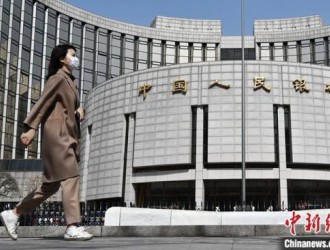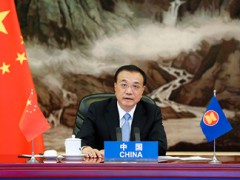中国对外投资将会受到影响。近年来,英国从中国吸引了大笔投资,已经成为中国在欧盟各国的第二大投资目的地(第一是卢森堡)。中国公司在英国的非金融类直接投资截至目前已经超过 130 亿美元。如果英国资产贬值,投资英国房地产的中国公司都将面临亏损,由此可能会引发中国国内对这些投资决策的批评。随着避险情绪的不断升温,中国投资者对于原先计划好的投资项目可能会愈发紧张,包括正在讨论中的欣克利角(Hinkley Point)核电站、高速公路以及金融服务领域的一些项目。英国对于中国银行公司的吸引力,一定程度上是因为通过英国可以很容易的深入欧盟市场。但是退欧之后,英国的市场准入和服务贸易的优势将不复存在。从另一个角度讲,国外企业对中国的投资也会减慢,因为来自发达经济体的公司将会更加谨慎,当然单这一点并不足以对于中国经济产生明显影响。
退欧带来的全球金融市场动荡将对中国有巨大的冲击。短期主要的动荡将主要反映在汇率市 场。投资者将会更加青睐避险货币,如美元和日元。2016 年中国政府为了防止人民币贬值花费了大量的外汇储备,但英镑贬值将会给新兴市场货币带来下行压力,包括人民币。中国的决策者将再次面临一个艰难的抉择:或让人民币跟随市场贬值,或使用昂贵的干预措施来 支撑人民币的稳定性。2015年的经验表明全球和中国的金融市场的联系比以往更加密切,如果全球股市的下跌,将会很快传导到中国的股票市场。新一轮的全球金融动荡可能会导致中国资本账户开放和金融自由化进程进一步放缓。
英国退欧给中国带来的政治影响将会非常显著。近年来在欧盟内部,英国都是“亲中国”的支持者。在欧盟国家中,英国不仅第一个表态要加入以中国为首的亚投行,也第一个支持在今年年底授予中国市场经济地位,并且支持欧盟与中国达成双边投资协定。在欧盟内部失去这样一个支持的声音,意味着中国与这个贸易集团之间的关系会变得更加复杂。除此之外,脱欧之后的政治动荡和欧盟内部的互相指责将会导致欧盟与中国的贸易谈判进程搁置,并且可能搁置数年。
While the direct economic impact of “Brexit” for China’s economy would be limited, it would not be immune to the global shocks emanating from the UK’s decision to leave the EU. The bilateral trade flows between the UK and China are not of systemic importance for the Chinese economy, accounting for around only 2% of China’s total external trade. However, Brexit will have an adverse impact on demand and confidence in the rest of the EU, which is China’s largest export market, as well as the wider global economy. The Economist Intelligence Unit forecasts that Brexit will chop around US$200bn from the size of the world economy over the next 18 months, a fact that suggests China’s struggling export sector is not going to receive a boost anytime soon. We do not expect the UK and the EU to conclude a deal over their new trading relationship until 2019-20 at the earliest.
Investment flows will be affected. Chinese companies have invested heavily in the UK in recent years, and the stock of Chinese overseas direct investment in the UK stands at around US$13bn, the second-largest in the EU. The many Chinese firms that have invested in the UK property market will have to book a loss in the near-term, as these assets fall in value, and this could give rise to domestic criticism about the wisdom of such investment choices. Amid heightened risk aversion, Chinese investors may become more nervous about future planned investments in the UK, including in strategic projects under discussion, such as the Hinkley Point nuclear plant and high-speed railway, as well as in financial-services. The UK’s appeal to Chinese banks has partly rested in its access to the EU market and the UK may struggle to maintain this access in services trade following Brexit. In the other direction, foreign direct investment in China may also slow, as firms in developed economies become more cautious, although this would have unlikely to be significant enough to have an impact on the local economy.
The global financial volatility that we anticipate will follow Brexit will have important implications for China. In the short-term the impact will be felt in currency markets, where we
expect investors to pile into safe-haven currencies such as the US dollar and Japanese yen. This will place downward pressure on emerging-market currencies, including the renminbi, which Chinese policymakers have spent considerable foreign-exchange reserves on stabilising in 2016. They may again face an unenviable choice of allowing the local currency to follow the market downwards, or making costly interventions to shore up its stability. Experience from 2015 suggests that the global and the Chinese financial markets are more intertwined than previously, so the declines we expect in global stock markets may pass too into the domestic equity markets. Renewed global financial volatility may strengthen the arguments of those in China in favour of slowing the process of capital-account opening and financial liberalisation.
The political implications of the UK’s leaving EU will also be significant for China. The UK, especially in recent years, has been a supportive voice within the EU for closer ties with China. It was the first EU country to say it would join the China-led Asian Investment Infrastructure Bank, has expressed support for China to be granted Market Economy Status later this year, and would be favourably disposed to an EU-China bilateral investment treaty. Losing such a voice within the EU could complicate China’s relationship with the trading bloc. Besides, the political fall-out and recriminations in the EU that would follow from Brexit would suggest bilateral discussions with China over such issues would be put onto the back-burner for a number of years.
 客服热线:
客服热线:














